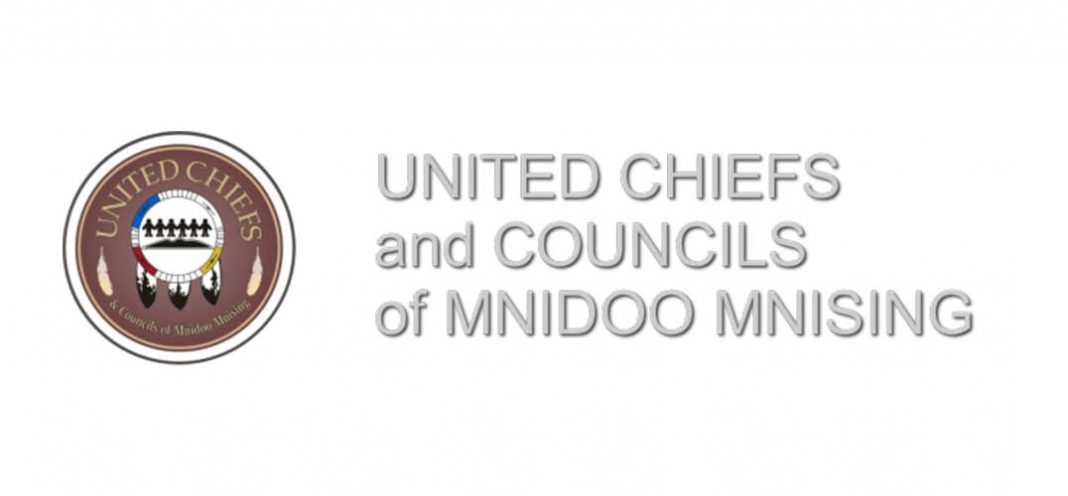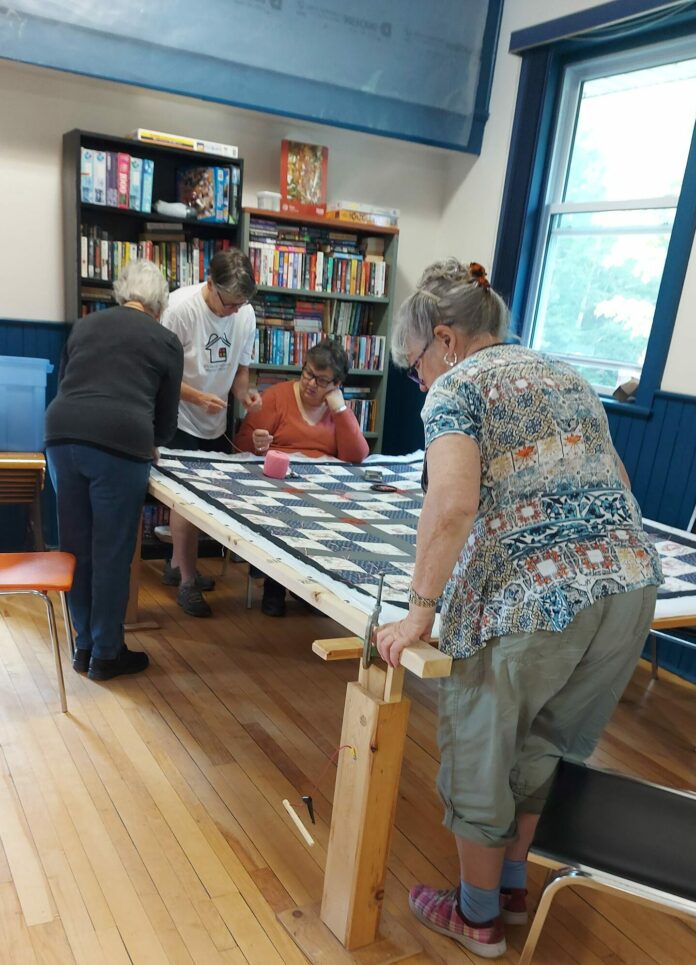LITTLE CURRENT—The United Chiefs and Councils of Mnidoo Mnising held a conference at the Manitoulin Hotel and Conference Centre on November 16 and 17 to educate participants on ways forward from the over-representation of Indigenous people in the penal system. The way criminal courts address the realities of Indigenous people who appear before them has changed dramatically in the over 20 years since the Supreme Court of Canada decided R. v. Gladue. However, the statistics of over-representation continue to rise.
The keynote speaker was Indigenous Relations Consultant Michael Etherington, Osmushkego-Cree, who is a TEDxTalk speaker, has appeared in the Globe and Mail, Toronto Star, CBC, CTV BreakfastTelevision, TVO, BBC Scotland, Maori TV and Season 1 feature interviewee on the APTN show Future History.
Mr. Etherington provides educational awareness to both organizations in the private and public sector to encourage building pathways between Indigenous and non-Indigenous peoples, speaking to the challenges of the implications of identity politics, saying, “We as Indigenous peoples in Canada are bureaucratically and politically entrenched, and it has created confusion, divisiveness; it continues to damage the potential for meaningful relations.”
Other guest speakers included Honourable Jessica Wolfe, Ontario Court of Justice Gore Bay, and His Worship Eli Fox, Justice of the Peace Kitchener, from M’Chigeeng. The event was emceed by Marti Shawanda Pitawanakwat of Whitefish First Nation, who was recognized for providing positive energy and encouragement through the sometimes heavy panel discussions.
Jessica Wolfe spent many years in the Gladue Court at Old City Hall as a federal crown and duty counsel, respectively. She has also contributed to the Supreme Court Law Review: Osgoode’s Annual Constitutional Cases Conference in 2022, with a collaborative article written with Emily Hill of the Aboriginal Legal Services.
“Meaningful change would mean returning justice issues, including corrections, to the capable, willing hands of Indigenous Peoples, a recommendation articulated—and many times repeated—since the Royal Commission on Aboriginal Peoples. This includes the inherent right of Indigenous Nations to establish and administer their own systems of justice pursuant to their inherent right of self-government, including the power to make and enforce laws within their territory.” – Ewert vs. Canada: Shining Light on Corrections and Indigenous People.
His Worship Justice Eli Fox of M’Chigeeng studied police foundations at Sault College and law and justice at Algoma University before embarking on a career in community development. He is a former member of the United Chiefs and Councils of Manitoulin (now the UCCMM), where he directed the program Zoongaabwe-od Eshniiig-jik, which focused on prevention strategies designed for youth involved in the court system and rooted in Traditional Anishinabek values based on the Medicine Wheel and the Seven Grandfather Teachings. He was also a program worker for the Indigenous Bail Verification and Supervision Program for the First Nations across Manitoulin Island. Most recently, he was appointed as Justice of the Peace in December of 2022.
The overarching themes of the conference were the disparities between colonial government policies and Indigenous worldview, the shift in substances available over the last decade from alcohol to the concerning opioid-laced street drugs and harm reduction practices, as well as strengthening safe networks at the community level for at-risk persons.
Michael Aelick, the aftercare program coordinator for Gwekwaadziwin Miikan Youth Mental Health and Addiction Program, noted that “land-based recovery programs translate directly to restorative justice, as the land allows us to connect with ourselves, by giving our grief back to nature.”
Candice Jacko, BSW, MSW and RSW of Aanse Bimaadziwin (Making changes to Live a Good Life in Anishinaabemowin), was also a panel member who described herself as a third generation survivor of the Indian Residential School Program. She and her parents both have attended Indian Day Schools. She says her gifts for working with her people come primarily from lived experience.
She attributes a lot of her healing to a ceremony she attended in her early twenties at the invitation of her aunt, saying that she experienced “the equivalent of five years of (mainstream) counselling because it went right to the root of where that trauma was coming from…it took that ceremony to understand that my ancestors came in to retrieve that anger and they said ‘we come to take what does not belong to you so you do not have to carry it anymore.”
“When it comes to education, that was a whole other thing. When I first started, I went into psychology. Two years in, I started arguing a lot with professors. I met with a professor one time. I worked really hard on this paper and he gave me a C-, which in university is a failing grade. So, I met with him and asked, ‘I worked so hard on this. I don’t understand why did you gave me such a bad grade?’ And he goes, ‘You missed the whole point.’ So that’s when I understood: ‘You want me to see things how you want me to see them. You’re not appreciating my worldview and how I see things’.”
The conference put into clear vision the need for a path to reconciliation that discards punitive measures and centers on Indigenous voices and worldviews regarding their community members trying to navigate the justice system and other institutions.






